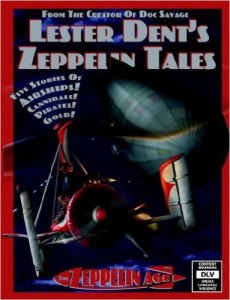The Machine Age is that glorious sixty-five years of scientific and especially technological development occurring between 1880 and 1945. Virtually everything we take for granted today, for good or for ill, has its origin in The Machine Age. In the coming weeks I’ll share with you some of the inventions, social movements, and artistic expressions originating in that glorious era when science and technology were going to solve all of our problems.
I became interested in The Machine Age when I started writing speculative fiction (or science fiction, if you prefer). And I soon discovered The Machine Age also touched upon the crime and horror fiction I also write, although much more indirectly. The Machine Age directly or indirectly touches on all writing.
Speculative fiction, whether heavily based in science or not, takes the known and extrapolates it into an alternative world from the one in which we live. That world might be in the future, another dimension, or an alternative past.
The speculative fiction I write falls into the subgenres of post-apocalyptic cozy catastrophes and dieselpunk. In both, I make heavy use of the wonders of The Machine Age.
In The Rocheport Saga, the hero, Bill Arthur, has set for himself the task of not letting the human race descend into the Stone Age after a mysterious illness wipes out nearly all of humanity. He is determined to overcome our modern lack of knowledge of how things work in order to rebuild society. The knowledge is all there, in books and old people, we just need to learn how to do what our parents, grandparents, and great-grandparents did as a matter of course.
Bill Arthur takes comfort in the fact that The Machine Age inventions were largely produced by amateurs. The Wright brothers made bicycles and Santos-Dumont was a wealthy kid who liked to tinker — they weren’t aeronautical engineers. The Stanley twins, one a photographer and the other a school teacher, were not automotive engineers. Count Zeppelin was a retired military officer who knew nothing about flying. His chief engineer and designer, Ludwig Dürr, knew nothing about airships. And the greatest airship captain of all time, Hugo Eckener, was a journalist.
In a very real sense, amateurs built the foundations of our modern world. Therefore in the post-apocalyptic world of Rocheport and Bill Arthur, amateurs can do it again. People simply need to understand how things work.
In the Lady Dru series and the forthcoming Rand Hart series, I build dieselpunk alternative histories based on The Machine Age. From the late 1800s through World War II, the dreamers of what the future would be like came up with some pretty fantastic ideas. Robots to be our servants and fight our wars. Airships to provide safe and quiet transportation for people and cargo. Cities free from pollution and traffic congestion. And, yes, flying cars.
Those same dreamers also came up with things like particle beam weapons and orbiting parabolic mirrors to send the sun’s light in death rays to destroy cities. They even speculated on thought beam weapons. The flying wing, jet engines, the ballistic and cruise missiles also came from those same dreamers.
The Machine Age was a wonderful time of fantastic technological advancement. I look forward to sharing with you some of the things I’ve discovered while doing research for my novels and I hope you enjoy the discoveries as much as I did.
Share This!

